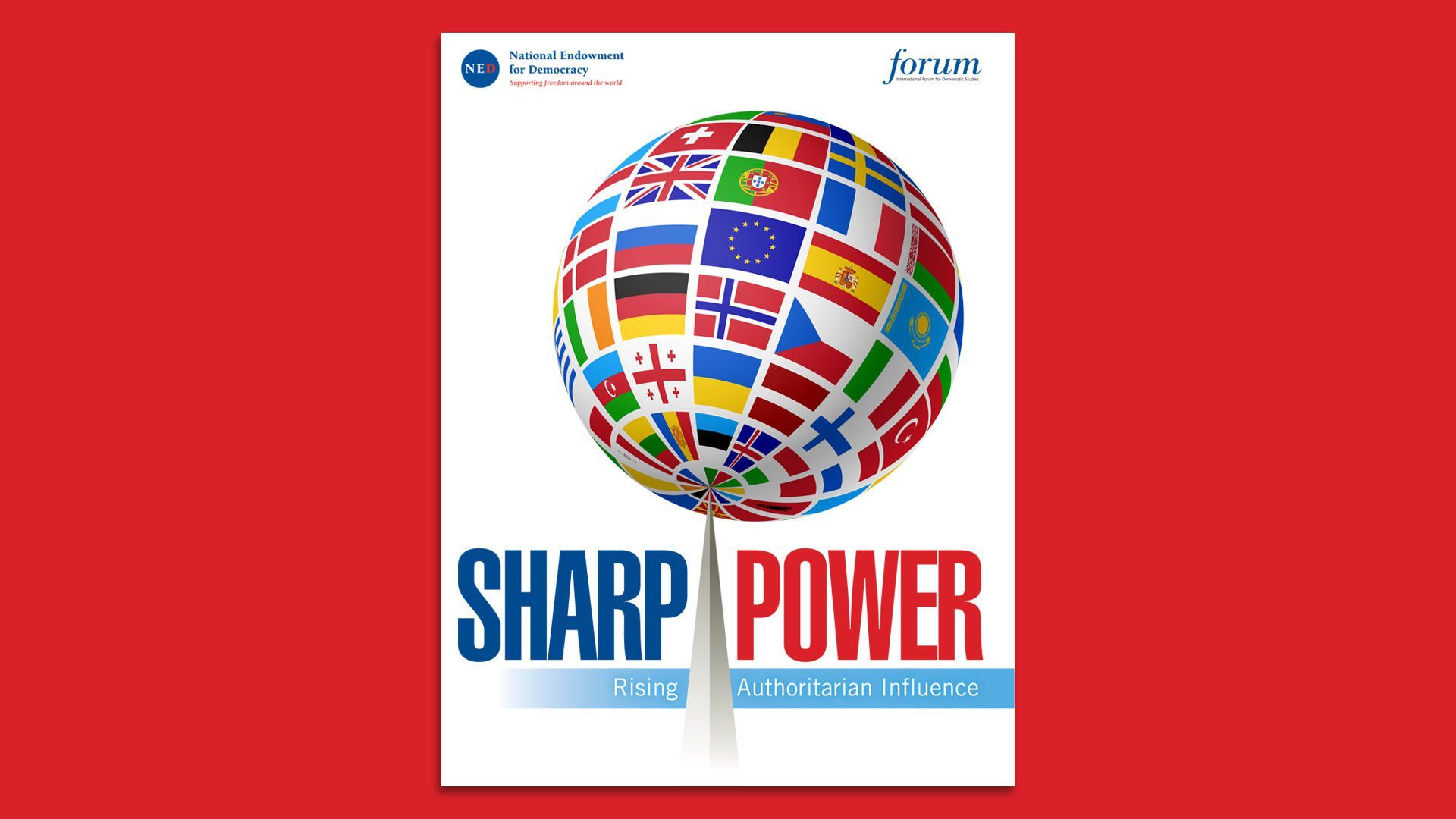What the phrase "sharp power" reveals about how Biden views China
Add Axios as your preferred source to
see more of our stories on Google.

Image: The National Endowment for Democracy
A senior Biden administration official used the term "sharp power" last week in a phone call with reporters to describe China's coercive activities around the globe.
Why it matters: The phrase hints at the administration's intellectual influences as they formulate new U.S. policies toward China.
- "Sharp power" is a term coined in a December 2017 report by the National Endowment for Democracy to describe how Russia and China use covert and coercive means to gain political influence abroad, particularly within democratic countries.
Background: In the 2010s, analysts worked to come up with accurate ways to describe the techniques China and Russia were honing to manipulate global perceptions and political environments in their favor.
- The NED report was quite influential, and the term "sharp power" soon became well known among specialists, though some criticized it as too broad.
- The Trump administration seemed to mostly settle on the term "malign influence activities" to convey a similar idea, while others call it "authoritarian interference."
From the NED report: "Some of the most visible authoritarian influence techniques used by countries such as China and Russia, while not 'hard' in the openly coercive sense, are not really 'soft' either," wrote the report's authors. "This authoritarian influence is not principally about attraction or even persuasion; instead, it centers on distraction and manipulation."
- "What we have to date understood as authoritarian 'soft power' is better categorized as 'sharp power' that pierces, penetrates, or perforates the political and information environments in the targeted countries."
Go deeper: Read the full NED report
